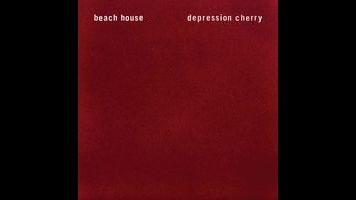Beach House’s latest is simple, immersive dream-pop

It can be difficult to focus on the subtleties within a Beach House album—and that’s not really a dig. The Baltimore duo of Victoria Legrand and Alex Scally is so delicate and cryptic in the weaving of its dream-pop tracks that even straightforward key changes float by unnoticed, like the dried seeds of a dandelion in the breeze. And Legrand’s smoky, drawling voice—which is very often layered and swallowed by itself like a Russian nesting doll—doesn’t so much escort you through a hypnotic melody of rich organ and guitar delay as it provides you with a feather-stuffed pillow and hand-knitted quilt to take a comfy nap inside of one.
But take a step back and view the full scope of the Beach House catalog and that’s when the new Depression Cherry, the band’s fifth full-length album, stands out due to its simplicity. Indeed, the band prefaced the release of the record by noting that with the success of 2010’s Teen Dream and 2012’s Bloom, it was being driven toward “a louder, more aggressive place,” and that with Depression Cherry it hopes to “evolve while fully ignoring the commercial context in which we exist.” Why the impetus for shedding weight from an already holistic sound needs to be explained in terms of a dream-pop existential crisis, who knows, but the approach is nevertheless a success.
Several of Depression Cherry’s tracks are constructed on rudimentary programmed rhythms as opposed to live studio drumming—the tempo on “10:37,” for instance, doesn’t sound far off from a slowed-down demo setting of a chintzy ’80s-era Casio keyboard. Because of that neither Legrand’s bleeding, occasionally omnipresent vocals, nor the crackling sustain of Scally’s guitar (see: “Sparks”) is really tethered to much of a beat; they’re both allowed room to explore as ambient noise seeps into a track’s negative space, à la your very favorite shoegaze bands. And beginning with the opener, “Levitation,” Legrand’s lyrics, though still plenty obscure and mysterious, also seem especially inviting, as if she’s actually eager—in her laissez-faire kind of way—to guide you along the edges of the album (“You should see there’s a place I want to take you.”).
Regardless of the “getting back to our roots” mantra on Depression Cherry the duo has aged so gracefully (and smartly) over its decade-plus together that the simplest of melodies—like the celestial keyboard line skipping forward on “Space Song,” or the way in which Legrand smoothly waltzes her vocals through “PPP”—continue to seem inventive, album after album. The band’s understanding of their own head-in-the-clouds aesthetic and knowing where to sew in (or cut out) the stitches to keep their sound in a constant, albeit low-key, flux results in much more of a mesmerizing experience than would changing directions entirely.